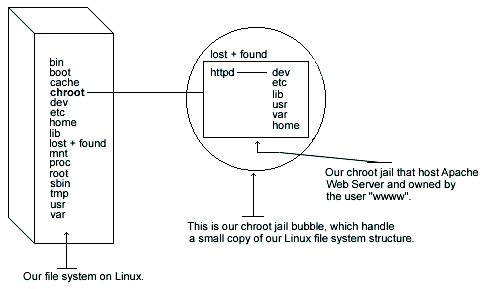
What is HTTPS?
HTTPS is the secure version of HTTP. By encrypting the data transmitted between web servers and browsers, it is a key part of securing Internet connections. It uses encryption methods like SSL and TLS.
How Does It Work
You will see the green padlock (or other padlock) on your browser when you visit an HTTPS website. This indicates that the site has been encrypted. This is good, because it shows that the communication is private between the webserver and your browser. This is important especially for sites that require sensitive information to be stored, like passwords or credit card details.
HTTPS protocol offers many benefits to websites. Some of the most notable ones include security, speed, and search engine optimization.
1. Increase Website Security
HTTPS protects websites and their users against hackers. Your website could easily be hacked, and any information collected from visitors to your site would be available to malicious actors.

2. Improves User Experience
HTTPS makes it possible to send encrypted messages between your browser and the server. This helps to keep your information safe from hackers and improves the speed of communication between you and your server.
3. Increase SEO Ranking
HTTPS can have a positive influence on SEO. Google ranks HTTPS sites higher in search engine results than non-secured websites.
4. Authentication
HTTPS relies on digital certificates as the most important element to confirm that a server has been authorized to process data. The certificates are digitally signed by certificate authorities to confirm that the server is who it says it is.
5. Encrypts Data and Reduces Size
HTTPS encrypts all data sent to the server before it is transmitted. This makes HTTP incompatible with HTTPS. It is impossible for hackers to read or alter the information.
6. Increases Performance
In addition to securing the data, the HTTPS protocol also increases data transfer speeds by reducing the size of transmitted information. This is important for businesses that want to optimize their websites for speed and efficiency.

7. Improves Privacy
HTTPS also has the benefit of preventing hackers from listening in on data sent between your browser to the server. This is particularly important for businesses who collect personal data from their users such as ecommerce stores and lead generation sites.
8. Adds Trust and Legitimacy to Your Business
The last major advantage of HTTPS is that it adds credibility and legitimacy to your website. It demonstrates that you care for your customers and the security of their personal information. This will make them more inclined to buy your products and services, as well as recommend you to others.
You should update your site, if not already done so, to HTTPS as quickly as possible. The sooner your website is updated to HTTPS the better. This will help you improve your SEO, and protect your customer's privacy and financial details.
FAQ
Can I build my website using HTML & CSS?
Yes! If you've been following along so far, you should now understand how to start creating a website.
After you have learned how to structure a website, you will need to know HTML and CSS.
HTML stands to represent HyperText Markup Language. This is like writing a recipe. You'd list the ingredients, instructions, along with directions. HTML is a way to tell a computer which parts are bold, underlined, italicized or linked to other parts of the document. It is the language used to describe documents.
CSS stands for Cascading Stylesheets. It is like a stylesheet that you use to create recipes. Instead of listing each ingredient or instruction, you will write down the general rules for font sizes and spacing.
HTML tells the browser how a page should look; CSS tells it what to do.
If you don't understand either of those terms, don't fret. Follow these tutorials, and you'll soon have beautiful websites.
Is it more likely to be hired as a web developer if I have a good portfolio?
Yes. You must have a portfolio to be considered for a job in web development or design. Your portfolio should show examples of your skills, experience, and knowledge.
Portfolios usually include samples of past projects. These examples can showcase your abilities. Portfolios should contain everything, from wireframes, mockups, logos and brochures to websites, apps, and websites.
Web development is hard?
Although web development isn't easy, there are many resources online that will help you get started.
All you have to do is find the right tools and then follow them step-by-step.
Many tutorials are available on YouTube and other platforms. Online software like Sublime Text and Notepad++ is also available for free.
You can also find many books in libraries and bookstores. The most widely-read books include:
O'Reilly Media's "HeadFirst HTML & CSS"
O'Reilly Media presents "Head First PHP and MySQL 5th Edition"
Packt Publishing: "PHP Programming to Absolute Beginners"
I hope this article helps you!
Should I use WordPress or a website builder?
It is best to start small in order to establish a web presence. If you have the time and resources to build a full-blown site, then do so. A simple blog is a good option if you don’t yet have the necessary resources. As you learn to develop and design websites, you can always add new features.
But before you build your first website, you should set up a primary domain name. This will provide you with a point of reference when you publish content.
What Websites should I make?
The answer to this question depends on your goals. To build a business around your website, you may want to focus on selling products online. You'll need to build a robust eCommerce site to do this successfully.
Blogs, portfolios, forums, and other types of websites are also popular. Each one of these websites requires different skills. To set up a blog for instance, you'll need to learn about blogging platforms like Blogger and WordPress.
You will need to decide how to customize your website's look when you select a platform. You can find many free templates and themes for every platform.
Once you have selected a platform you can add content to your website. You can add images and videos to your pages.
You can publish your website online once you have launched it. Visitors can access your website in their browsers once it is published.
How do I choose a Domain Name?
It is important that you choose a domain name that is memorable. Without a great domain name, people will not know where to find you when they search for your product.
Domain names should not be too long, difficult to remember, specific to your brand, or unique. It is ideal to have something that people can type into their browser.
Here are some tips to help you choose the right domain name.
* Use keywords that are related to your niche.
* Avoid hyphens (-), numbers, and symbols.
* Don't use.net or.org domains.
* Do not use words you already know.
* Avoid using generic terms like "domain"/website.
* Check it's always available.
Do I Need Any Technical Skills To Design And Build My Site?
No. All you need is an understanding of HTML and CSS. Tutorials that teach HTML and CSS can be easily found online.
Statistics
- Did you know videos can boost organic search traffic to your website by 157%? (wix.com)
- It's estimated that chatbots could reduce this by 30%. Gone are the days when chatbots were mere gimmicks – now, they're becoming ever more essential to customer-facing services. (websitebuilderexpert.com)
- In fact, according to Color Matters, a signature color can boost brand recognition by 80%. There's a lot of psychology behind people's perception of color, so it's important to understand how it's used with your industry. (websitebuilderexpert.com)
- The average website user will read about 20% of the text on any given page, so it's crucial to entice them with an appropriate vibe. (websitebuilderexpert.com)
- It's estimated that in 2022, over 2.14 billion people will purchase goods and services online. (wix.com)
External Links
How To
How do I choose between CMSs?
In general, there are two types of Content Management System (CMS) Web Designers use Static HTML and Dynamic CMS. WordPress is the most popular CMS. Joomla! is an excellent CMS for making your site professional and well-organized. Joomla! is an open-source CMS that allows you to create any type of website design. It is easy to set up and configure. You don't need to hire a developer to set up your site because Joomla comes with thousands of ready-made templates and extensions. Joomla is also free to download and install. Joomla is an excellent choice for your next project.
Joomla is a powerful tool to help you manage every aspect of your site. Joomla has many great features including a drag-and drop editor and multiple template support. It also includes image management, blog management, blog administration, news feed, eCommerce, as well as blog management. Joomla is an ideal choice for anyone wanting to build a website, without needing to know how to code.
Joomla works on almost all devices. It is easy to build websites for different platforms.
There are many reasons Joomla is preferred over WordPress. Some of them include:
-
Joomla is Open Source Software
-
It is easy to install and configure
-
Many thousands of pre-made templates and extensions
-
Free to Download and Use
-
All Devices Are Supported
-
The Powerful Features
-
Great Support Community
-
Very Secure
-
Flexible
-
Highly customizable
-
Multi-Lingual
-
SEO Friendly
-
Responsive
-
Social Media Integration
-
Mobile Optimized